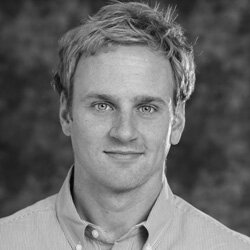Democracy consists of more than voting
|
When I tell someone that I study democratic politics, I am inevitably asked a question about the upcoming presidential election. And this is not surprising; as Stephen Colbert recently noted, it’s the biggest story in the world and nobody dies, making it a great topic of conversation.
While Colbert may have been exaggerating a bit, it’s safe to say that next year’s election is pivotal. In fact, all elections in a democracy are important. It’s the one moment each year where “the people” “speak.”
But is this all there is to democracy? Is democracy nothing more than a system of government where, after completing the task of choosing their representatives, “the people” continue on with their private business? Or, does being a democratic citizen require something more than merely spending an hour at the polls each November? If so, what else should/must democratic citizens do?
Many have provided us some answers to these questions. The French political thinker Alexis de Tocqueville extolled the “civic spirit” he found everywhere in his travels across America. American philosopher John Dewey understood democracy as a way of life.
More recently, political theorist and civil rights activist Harry Boyte has called for reviving what he terms “a different kind of politics,” a politics of action and agency, not protest and petition. It is a kind of politics in which the people do “public work,” instead of hiring a politician to do politics on their behalf. It is a kind of politics where the citizens don’t wait for unresponsive, complicated and immense bureaucracies to fix their problems — they do it themselves.
I am not claiming that elections are unimportant; obviously, local, state and federal representative bodies are a constitutive part of any democratic community. Yet it is easy to forget that institutional politics is just that: a part of democracy. Democracy consists of more than voting. It is a system of government where the people are empowered to create the world as they want it to be.
Some might think this sounds naive; who, outside of an idealistic graduate student studying political science, has the time to engage in such tasks? Most are too busy to contribute to our shared public life beyond participating in elections — making an “informed” choice in November is hard enough as it is.
While I’m sympathetic to such concerns, following BoyteI’d like to suggest that creating and maintaining the body politic requires work. Though the prospect of doing more work usually doesn’t inspire us, the work of maintaining democracy is essential. “Public work” draws private citizens into the public spaces. It forces citizens to engage across political, economic and social differences. It strengthens our shared conception of the common good and it revitalizes our bond as co-creators of a democratic community.
Failure to do this work has the opposite effect. Differences become entrenched and solidified. Our sense of agency is enervated. And, eventually, our capacity to act is gone — politics becomes the domain of the experts or technocrats who participate not out of a concern for the common good, but for private gain.
While I acknowledge that participation in democratic politics is not necessarily convenient, I think it is prudent to heed the warnings of French philosopher Jean Jacques Rousseau, who wrote, ‘’Free peoples, remember this axiom: liberty can be acquired, but it can never be recovered.”
Isak Tranvik
Isak Tranvik, from Minneapolis, is a graduate student in political science at Duke.
More Info

